MODERNITY
Divine Guidance in the Digital Age
In every era, our Creator sends an emissary with signs attuned to the talents and sciences that define the time. Indeed, rather than guiding people toward Allah, these fields of knowledge often veil the divine truth, causing many to be awed by human achievement instead of seeking the source behind it all.
For instance, the people in the time of Prophet Moses were adept in the arts of illusion and transformation (siḥr), so Allah sent Moses with a sign that transcended their skills: the miraculous transformation of a staff into a serpent. As the Qur'an tells us, "Then We inspired Moses, ‘Throw down your staff,” and—behold!—it devoured the falsehood they had woven!’" (Qur'an 7:117). Similarly, at a time when medical knowledge and the sciences of herbal medicine captivated society, Prophet Jesus was sent with miracles that redefined what healing could mean. Allah indeed says, “And [He will make Jesus] a messenger to the Children of Israel, [who will say], 'Indeed I have come to you with a sign from your Lord in that I design for you from clay [that which is] like the form of a bird; then I breathe into it, and it becomes a bird by permission of Allah. And I cure the blind and the leper, and I give life to the dead - by permission of Allah’” (Qur'an 3:49).
Then came the seal of the prophets, our Prophet Muhammad, whose miracle lay in the eloquence and unmatched clarity of the Qur'an, a response to a society that prized poetry and rhetoric. As the Qur'an itself declares, it is “An Arabic Qur'an, without any deviance, so that they may become righteous” (Qur'an 39:28). This clarity and precision in the Arabic language was intended to inspire reflection and to guide those who listened. Furthermore, it is described as “a revelation of the Lord of the worlds...in a clear Arabic language” (26:192-195), underscoring both its divine origin and its linguistic accessibility to its audience. This is not to deny the other physical miracles of our Prophet; as the collective (jamʿiyya) of all previous prophets, he manifested a miracle from every prophetic presence (ḥaḍra). The Qurʾan's eloquence and linguistic purity, however, were not merely a medium for divine revelation but a powerful sign of its miraculous nature, designed to reach and transform a people who held the arts of language in the highest regard.
But what about today?
In an era shaped by technology, artificial intelligence, and digital realities, advancements connect nearly every aspect of life, embedding software and AI into daily interactions. Those without access to such technology often struggle to keep up, making it a source of both power and perceived legitimacy. Technology primarily engages us through sight—screens, virtual reality, and immersive simulations. Yet amid this digital marvel, Allah has blessed us with a different light, reminding us of the divine source behind all existence.
The role of the walī now becomes essential. While the time of Prophets and Messengers has passed, saints (awliyāʾ) remain as our connection to Allah, tasked with renewing the matters of this religion. Each walī arrives with a miracle (karāma) that suits their time, and so it is with our Shaykh for those endowed with understanding and discernment. Our Shaykh, Sidi Mohamed Faouzi al-Karkari, has been granted the gift to reveal the light of Allah to those who seek it, allowing them to witness it directly, without any device or digital connection—through pure supplication and remembrance of Allah.
Unlike technology, which fades when power is cut, this divine light is eternal. It transcends the earth and the heavens, illuminating the core truth that sustains all existence. As the Qurʾan says, “Allah is the Light of the heavens and the earth. The exemplification of His light is like a niche wherein is a lamp. The lamp is in a glass, the glass as it were a brilliant star” (Qurʾan 24:35). This light is the reality from which the heavens and the earth were created and to which all will return. While technology can simulate and inspire awe, it is the light of Allah that truly illuminates the heart and connects us to the essence of existence. Ascribing existence, power, or legitimacy to anything else is mere absurdity, for all else is a veil that plunges us into the depths of egoism and darkness. The role of our Shaykh, then, is to awaken those mesmerized by the allure of technology, guiding them through the light Allah has granted him, and returning them to the essence of monotheism (tawḥīd): “Allah—not human-made technology—is the Light of the heavens and the earth.”
This is not, of course, a call to disengage from technology or to hinder its advancement. Rather, it is a call to order our priorities. Many among our brothers and sisters in the path, disciples pursuing knowledge academically and professionally, contribute to fields of science, technology, and medicine, and these endeavors are as valuable as ever. But while these pursuits add value to our worldly lives, they should not eclipse the eternal light that sustains our souls. True clarity comes only when our worldly engagements, no matter how impressive or progressive, remain grounded in the light and guidance of Allah. In this way, our quest to improve the world transforms into a quest to fulfill our original, essential goal: improving ourselves to return to the divine and reach true knowledge and acquaintance with our Designer.
Publication Date
November 14, 2024


